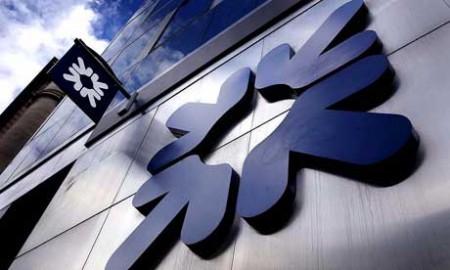
Royal Bank of Scotland (RBS) today revealed that the value of its assets has fallen by £6.1 billion this year as it “regretfully” laid out plans to raise £19.7 billion to prop up its balance sheet.
Related article: Rescued RBS to pay millions in bonuses
RBS hopes to raise £15 billion through offering new ordinary shares to investors at 65.5p each, above today’s share price, which fell slightly to 64.8p.The offer is fully underwritten by the Government so, if investors choose not to buy stock, the Treasury will buy the shares, using taxpayers’ funds.
The lender, which raised £12 billion through a rights issue only four months ago, also said today that it will issue £5 billion in preference shares to the Government, which will buy the stock using taxpayers’ money.
Preference shares mean the Government must be repaid before the bank may pay dividends to shareholders.
RBS revealed this morning that it had written down the value of its assets by a further £206 million in the third quarter, adding to the £5.9 billion it declared in the first six months of 2008. The potential third-quarter writedown of £1.2 billion was reduced to £206 million by an accounting change.
Stephen Hester, chief executive designate of RBS, who is taking over from Sir Fred Goodwin, who left the bank in October, said that it hopes to start paying a dividend again in 2010, either through paying the Government back, or by a new placing of preference shares once market conditions had improved.
He declined to comment on how many RBS employees would lose their jobs as the result of a strategic review that is taking place, but said that the lender would give more details at its full-year results in February.
Mr Hester, who will become chief executive in two weeks, said: “I am very cognizant of the difficulties in the economic environment that we all know about in ours and other banks, but equally I am cognizant that we have the skills to administer medicine to ourselves.
“I believe that we have the strength and experience to be winners going forward.”
It is remains undecided whether RBS staff will be awarded bonuses this year. Mr Hester said that tne bank’s management had to be “mindful” of its 170,000 staff. He said: “Some of them have done an outstanding job for us and need to be incentivised.
He declined to predict whether RBS would be profitable for the full year, but said he was aware of some analysts’ forecasts that the bank would make a loss after its huge writedowns.
Mr Hester said that RBS would take a “conservative” approach to its balance sheet in the next few years and was likely to focus on the more customer-centred parts of the business. However, he emphasised that the bank would remain global, rather than focusing solely on its core UK high street operations.
Sir Tom McKillop, the chairman of RBS who is due to step down when the bank’s reorganisation is complete, said today: “This decision was reached by the board with considerable regret as we recognised the impact it would have on shareholders.
“However, the board is convinced that further significant capital raising is required in order to shift the focus of the group from capital rebuilding to capital strength, to provide confidence to our customers and investors and to give the group the financial capability to protect and deliver the value of its established and profitable customer franchises during these unprecedented economic and market conditions.”
The bank said that operating profit, before credit market writedowns and gains on the fair value of debt in first nine months of 2008, was 8 per cent lower, while underlying profit before impairments increased by 7 per cent.
Sir Tom said: “This has been an extremely disappointing and difficult time for shareholders, employees and customers but I want to assure you that all of the board’s energy is devoted to re-establishing the value and reputation of the group.”
The proposals, part of a £37 billion bailout of UK banks by the Government, are likely to leave the taxpayer as RBS’s single largest shareholder.
The bank’s annual meeting will take place on November 20, 2008.
The lender also announced today that Mark Fisher, an executive director and member of the board who is seconded to ABN Amro, the Dutch bank that RBS, Spain’s Santander and Belgium’s Fortis acquired, will leave the group in 2009.
He will resign down as a director on November 21 as part of the board restructuring.
November 4, 2008
Catherine Boyle
Source: The Times